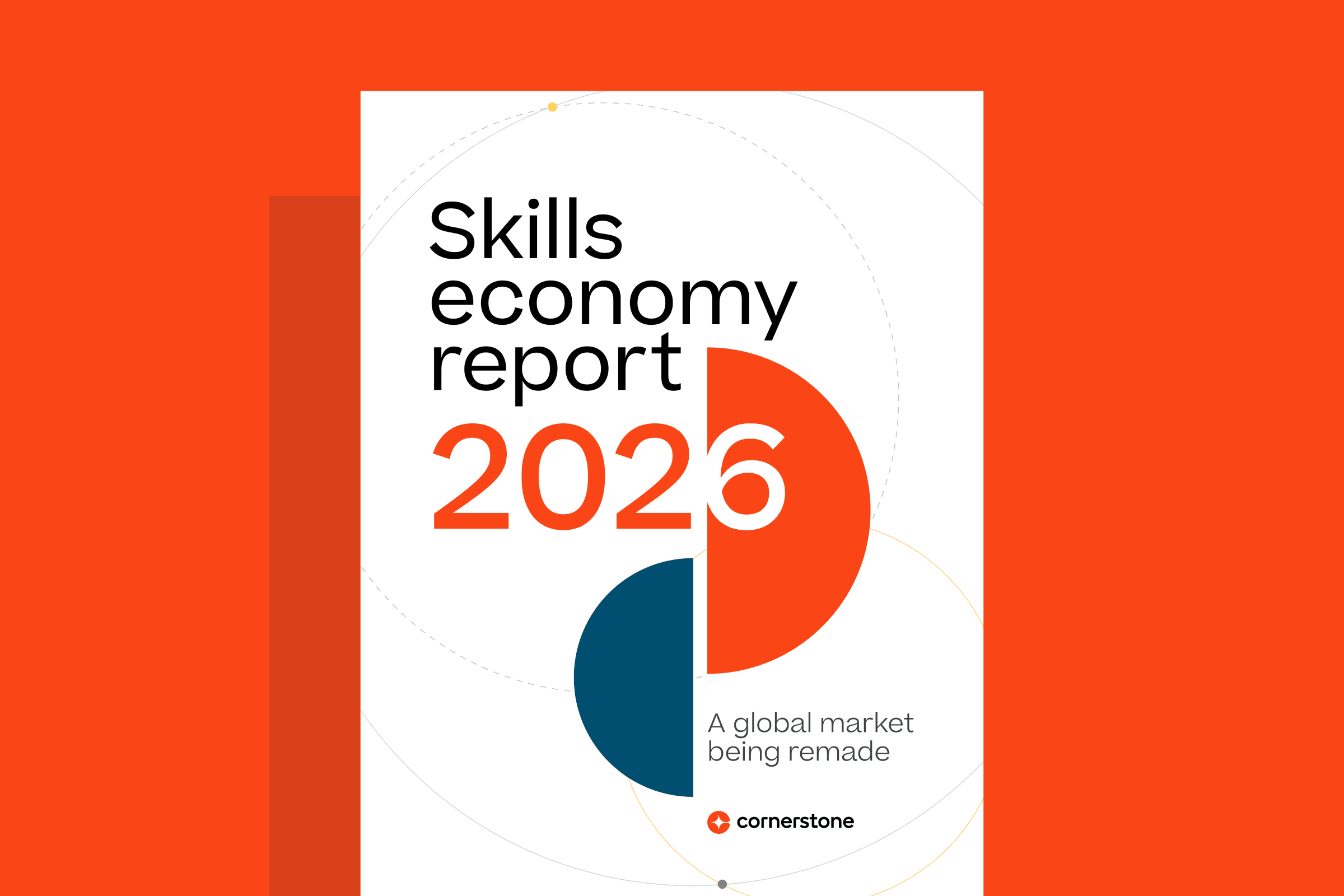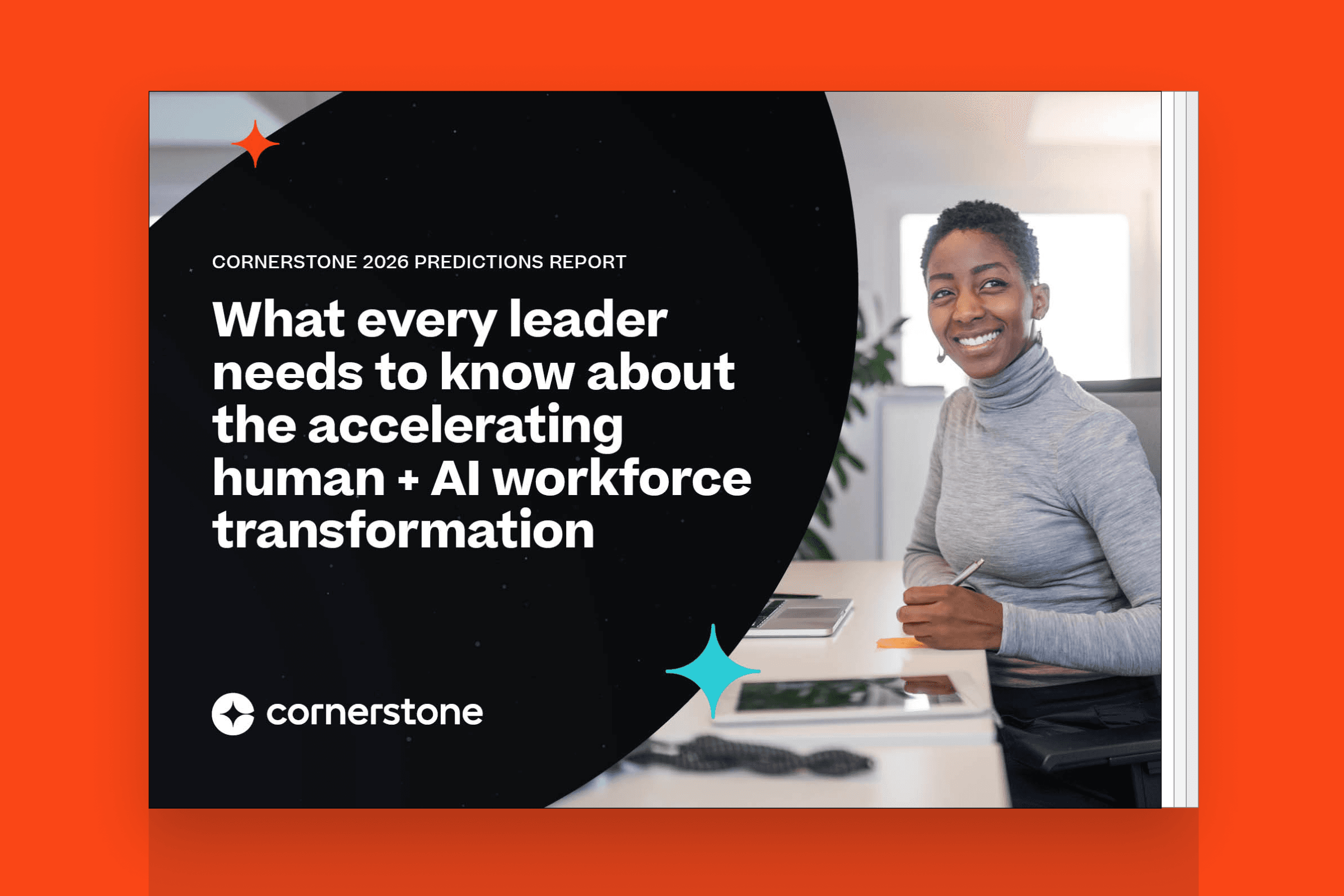Even before Covid-19 and the social and economic disruptions that followed, changing technologies and new ways of working put pressure on talent recruitment and retention. Since then, that pressure has only increased. Roles are shifting quickly and skills are becoming obsolete faster.The need for organizations to reset for growth is critical and matching employees to new roles and activities is essential.
The good news is that according to PwC, 77% of adults would learn new skills now or completely retrain to improve their future employability. Sadly though, employees think it’s easier to find a new job outside their company than inside. In this time of the “Great Resignation,” employees are increasingly prioritizing job opportunities that promise career growth, skills development, learning opportunities and flexibility.
Now is the time for your organization to commit to reskilling
By reorienting your organization around skills, you can offer career growth and mobility that attracts the best people and makes them want to stay. This approach also provides a more agile way to understand, develop, and provision people already in your workforce to dynamically meet your organization’s needs.
This focus on the people’s skills is about understanding and tapping into the holistic skill and capability portfolio of potential candidates and, more importantly, of every one of your employees. With this skill information, your organization can guide employees on career paths, connect different jobs and provide recommended learning opportunities.
Lean into employee capabilities instead of competencies
Hiring, managing and developing your people based on skills and competency is outdated. To survive and thrive in the current business landscape, you need to center your talent strategies on skills and capabilities.
Here’s why:
Competency places all the weight on what skills workers already have to perform in their roles.
For example, take the skills “making a cappuccino” and “decision making.” These are both examples of a skill and a competency.
However, reliance on competencies results in talent teams building static lists of what it takes to get individual jobs done. And what often happens is that by the time you conduct manual reviews of the skills needed for certain positions, the elements that informed that static list need to be updated.
This competencies-first approach isn’t responsive enough to help your organization quickly pivot in response to changing market conditions. Nor does it help your people connect learning with growth opportunities.
But when you shift the focus to skills and capabilities, interpersonal skills and worker potential are weaved into a holistic employee profile. The emphasis here is on high-level abilities and traits that your employees and your organization need for future success, such as communication, collaboration and emotional intelligence.
Connect your people with the right growth opportunities
Job descriptions focused on competencies don’t naturally open career growth conversations between managers and employees. To help your people and your organization adapt to “the next normal,” you need to connect learning to the benefits of career growth. This connection is about highlighting opportunities to advance people’s careers while also transforming the organization.
Roles, interests and workflows become more fluid with this approach. Employees can enjoy more freedom, creativity and flexibility. Like how you can now assign projects or tasks based on interest, availability and expertise rather than a standard “role.”
Sounds great in principle. But how do you, as a talent leader, help your organization make this shift? Sure, you could connect with people managers to discuss what skill gaps exist on their teams, how to fill vacancies and what capabilities will breed success in the future version of each role. You might even consider asking your employees directly.
And yes, those discussions will help. However, even the most data-driven and analytical thinkers would be hard-pressed to capture and understand the complex skill mapping and skill adjacency process. But when you let AI-powered technology do that heavy lifting, you can go beyond tracking skills to enable action-oriented talent practices like never before.
How your entire organization can benefit from skills transparency
AI-powered talent solutions can help you identify the existing skills of your workforce so you can use that data as a baseline for identifying gaps, supporting pivots and prioritizing activities throughout the business. A well-rounded understanding of the skills and capabilities of your workforce provides insights, data and clarity on what your people can already do and where you can tap into hidden talent.
With the support of AI, you can identify, develop and elevate people into different jobs, projects and gigs. Essentially ensuring you have a pipeline of talent available for whatever your business needs next.
AI also helps you create a better experience for people (i.e., engagement and retention by enabling career growth and internal mobility) and supports the development of a workforce that is agile and adaptable to shifting market conditions.
Using skills to engage employees with their career paths
Providing employees with richer insight into their skills via skill mapping and skill adjacency removes the guesswork from their next career step.
Suppose an employee can see they have level-one communication skills as an associate product marketer and a traditional product marketer role requires level-three communication skills. In that case, they have much deeper insights into the skills, development and work experience they need to for a promotion.
Conversely, when people managers understand their team members’ skills and capabilities, they can better understand and coach their teams to take on stretch assignments to grow into new roles. A quarterly development conversation can now consider what the employee has accomplished, where they want to go and what skills they should keep developing throughout the year.
By making skills data and qualifications information readily available for different roles and career paths and surfacing learning content and development opportunities that will help them get there, employees can proactively pursue a growth plan that accelerates career mobility.
Done right, it all can deliver a broad range of benefits to your organization, too — improving organizational agility, enhancing workforce productivity and fostering increased transparency, diversity, equity and inclusion.


